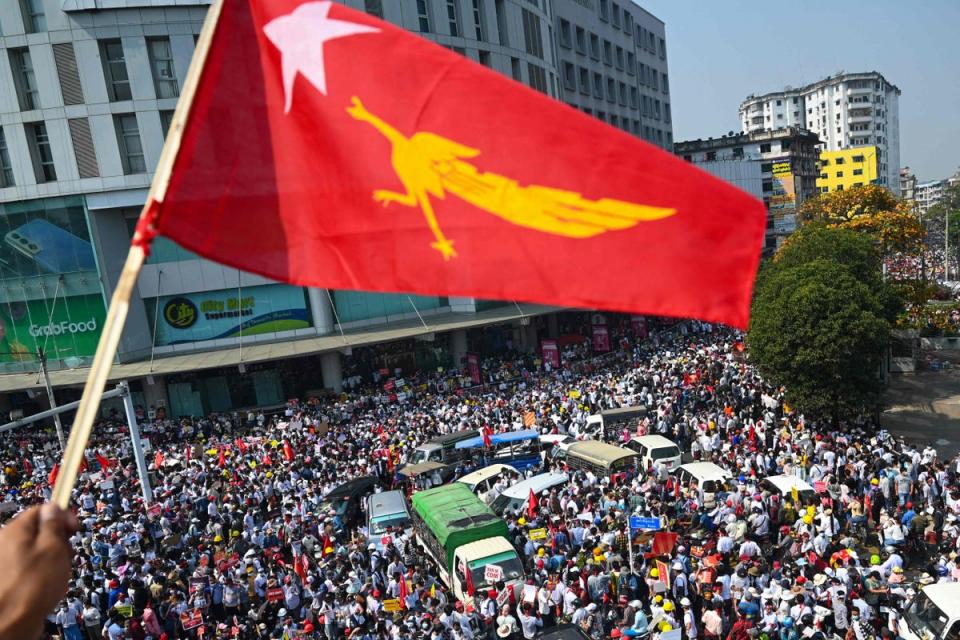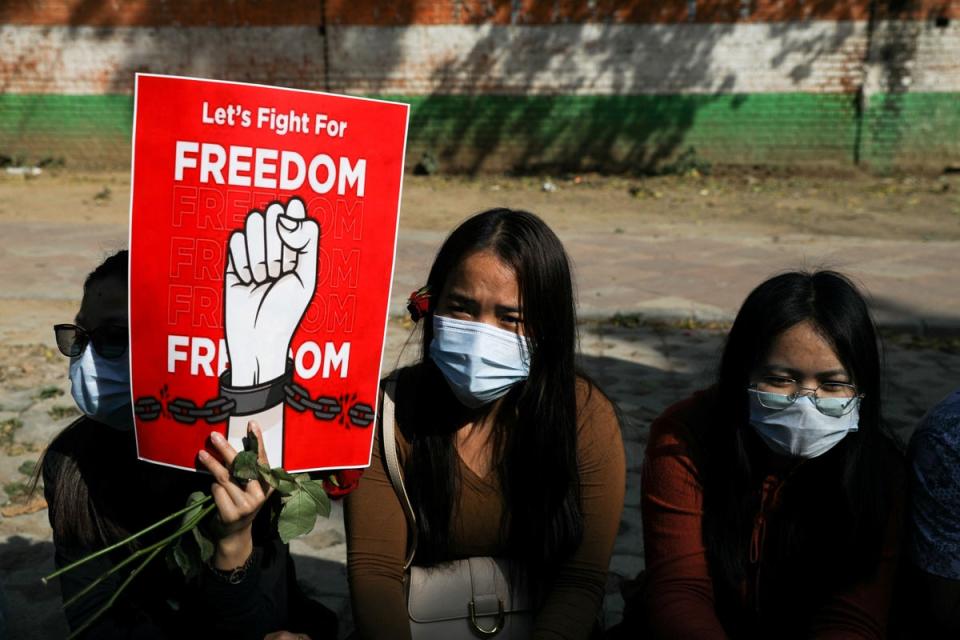Myanmar junta executes four democracy activists in first capital punishment in nearly 30 years
Myanmar’s military has executed four pro-democracy activists, including a former lawmaker from ousted leader Aung San Suu Kyi’s party, in the nation’s first use of capital punishment after nearly three decades.
Veteran democracy figure Kyaw Min Yu, 53, better known as Jimmy, former National League for Democracy lawmaker Phyo Zeyar Thaw, 41, and activists Hla Myo Aung and Aung Thura Zaw were executed on charges of terrorism, the junta said on Monday.
The four had been charged under the nation’s counter-terrorism law and were awarded capital punishment in January in a closed-door trial for “murdering innocent civilians”. They were accused of helping militias fight against the military regime.
Hla Myo Aung and Aung Thura Zaw were convicted in April 2021 for allegedly killing a military informant.
The activists were executed for leading “brutal and inhumane terror acts”, junta mouthpiece The Global New Light of Myanmar said, without providing details on when and how the men were executed.
According to a statement in the paper, “the punishment has been conducted under the prison’s procedures”.

The families of the activists were allowed to communicate with the inmates via Zoom from a separate building on the compound of Yangon’s Insein Prison on Friday, Myanmar Now reported. The prisoners were executed the next day and cremated at Yangon’s Htein Pin cemetery later the same day.
Thazin Nyunt Aung, the wife of Phyo Zeyar Thaw, however, said she had not been told of her husband’s execution.
The executions, condemned by rights groups, mark the first implementation of capital punishment in the country in nearly three decades.
Since wresting power from the Suu Kyi government in a February coup last year, the military has been accused of ruling the southeast Asian country with an iron fist by unleashing a bloody crackdown and imprisoning dissenters.

Activist group The Assistance Association of Political Prisoners (AAPP) claims more than 2,100 people have been killed by the security forces since the coup, a number refuted by the junta. Civilians have been taking up arms against the junta and its alleged attempts at stifling democracy marked by widespread violence, sparking an international outcry.
Myanmar’s National Unity Government (NUG), a broad alliance of anti-coup organisations outlawed by the ruling military junta, condemned the executions.
“Extremely saddened... condemn the junta’s cruelty with strongest terms if it’s the case,” the NUG president’s office spokesman Kyaw Zaw told Reuters. “The global community must punish their cruelty.”
Defending the death penalty, military spokesman Zaw Min Tun in a televised news conference last month said: “At least 50 innocent civilians, excluding security forces, died because of them.”
“How can you say this is not justice. Required actions are needed to be done in the required moments,” he added.
The shocking executions of Phyo Zeya Thaw, Ko Jimmy, Hla Myo Aung and Aung Thura Zaw are #CrimesAgainstHumanity and #WarCrimes. All perpetrators from Min Aung Hlaing down must be held accountable for these brazen acts of cruelty. #EndImpunity
— Justice For Myanmar (@JusticeMyanmar) July 25, 2022
Human Rights Watch called the execution an “act of utter cruelty”.
“The junta’s barbarity and callous disregard for human life aims to chill the anti-coup protest movement. European Union member states, the United States, and other governments should show the junta that there will be a reckoning for its crimes,” Elaine Pearson, acting Asia director at Human Rights Watch, said in a statement.
“They should demand immediate measures, including the release of all political prisoners, and let the junta know the atrocities it commits have consequences.”
The latest executions close off any chance of ending the unrest, said Myanmar analyst Richard Horsey, of the International CRISIS group.
“Any possibility of dialogue to end the crisis created by the coup has now been removed,” he said.
Erwin Van Der Borght, the regional director of Amnesty International, said the executions "amount to arbitrary deprivation of lives and are another example of Myanmar's atrocious human rights record".
"The four men were convicted by a military court in highly secretive and deeply unfair trials. The international community must act immediately as more than 100 people are believed to be on death row after being convicted in similar proceedings."


